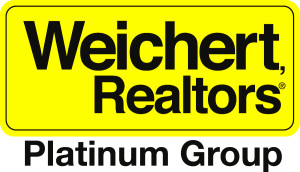GRAND RAPIDS HOME BUYER TIPS
 Buying a home can be one of your most significant investments in life. Not only are you choosing your dwelling place, and the place in which you will bring up your family, you are most likely investing a large portion of your assets into this venture. The more prepared you are at the outset, the less overwhelming and chaotic the buying process will be. The goal of this page is to provide you with detailed information to assist you in making an intelligent and informed decision. Remember, if you have any questions about the process, I’m only a phone call or email away!
Buying a home can be one of your most significant investments in life. Not only are you choosing your dwelling place, and the place in which you will bring up your family, you are most likely investing a large portion of your assets into this venture. The more prepared you are at the outset, the less overwhelming and chaotic the buying process will be. The goal of this page is to provide you with detailed information to assist you in making an intelligent and informed decision. Remember, if you have any questions about the process, I’m only a phone call or email away!
Tip #3: Don’t Buy a Car – or Did You Already Buy One?
Don’t Buy a Car
When an individual’s income starts growing and they manage to set aside some savings, they commonly experience what may be considered an innate instinct of modern civilized mankind.
The desire to spend money.
Since North Americans have a special love affair with the automobile, this becomes a high priority item on the shopping list. Later, other things will be added and one of those will probably be a house.
However, by the time home ownership has become more than a distant and hopeful dream, you may have already bought the car.
It happens all the time, sometimes just before you contact a lender to get pre-qualified for a mortgage.
As part of the interview, you may tell the loan officer your price target. He will ask about your income, your savings and your debts, then give you his opinion. “If only you didn’t have this car payment,” he might begin, “you would certainly qualify for a home loan to buy that house.”
Debt-to-Income Ratios and Car Payments
When determining your ability to qualify for a mortgage, a lender looks at what is called your “debt-to-income” ratio. A debt-to-income ratio is the percentage of your gross monthly income (before taxes) that you spend on debt. This will include your monthly housing costs, including principal, interest, taxes, insurance, and homeowner’s association fees, if any. It will also include your monthly consumer debt, including credit cards, student loans, installment debt, and….
…car payments.
How a New Car Payment Reduces Your Purchase Price
Suppose you earn $5000 a month and you have a car payment of $400. At current interest rates (approximately 8% on a thirty-year fixed rate loan), you would qualify for approximately $55,000 less than if you did not have the car payment.
Even if you feel you can afford the car payment, mortgage companies approve your mortgage based on their guidelines, not yours. Do not get discouraged, however. You should still take the time to get pre-qualified by a lender.
However, if you have not already bought a car, remember one thing. Whenever the thought of buying a car enters your mind, think ahead. Think about buying a home first. Buying a home is a much more important purchase when considering your future financial well being.
More Home Buyer Tips
Tip #1: Benefits of Owning Your Own Home
- The Best Investment
- Income Tax Savings
- Stable Monthly Housing Costs
- Forced Savings
- Freedom and Individuality
- More Space
Tip #2: Important Things To Avoid Before Buying a Home
- Don’t Move Money Around
- The Effect of Changing Jobs
- No Major Purchases of Any Kind
Tip #3: Don’t Buy a Car – or Did You Already Buy One?
- When Income Grows and You Want to Buy “Stuff”
- Debt-to-Income Ratios and Car Payments
- How Buying a Car Reduces Your Purchase Price
Tip #4: The Business Cycle and Buying a Home
- Recession and Expansion
- Supply and Demand
- Should You Try to “Time the Market”?
Tip #5: Comparable Sales and Your Offer Price
- Determining Your Offer Price
- Comparable Sales in the Public Record
- Comparable Sales in the Multiple Listing Service
- Comparable Sales – Pending Transactions
- Other Factors Influencing Your Offer Price
Tip #6: Major Factors Influencing your Offer Price
- How Property Condition Affects Your Offer
- How Home Improvements Affect Your Offer
- How Market Conditions Affect Your Offer
- How Seller Motivation Affects Your Offer
- The Final Decision on Your Offer Price
Tip #7: Offering to Purchase Real Estate- the Basics
- Introduction and Overview
- Contingencies in a Purchase Offer
- Earnest Money Deposit
- The Closing Date
- Transfer of Possession
Tip #8: Writing an Offer – Safeguards Regarding the Property
- Disclosures From the Seller
- Condition of the Property Upon Transfer
- Inspections You Should Require
- Final Walk-Through Inspection
Tip #9: How Financing Details Affect Your Offer
- Down Payment
- Interest Rates
- Closing Costs and Financing Incentives
- Seller Financing
- Cash Offers
- Other Financing Details in Your Offer
Tip #10: How FHA and VA Financing Affects Your Offer
- Extra Costs for the Seller
- VA and FHA Appraisals
Tip #11: Selecting Service Providers
- You and the Seller Must Agree
- Escrow and Settlement
- Title Insurance
- Termite and Pest Inspection



